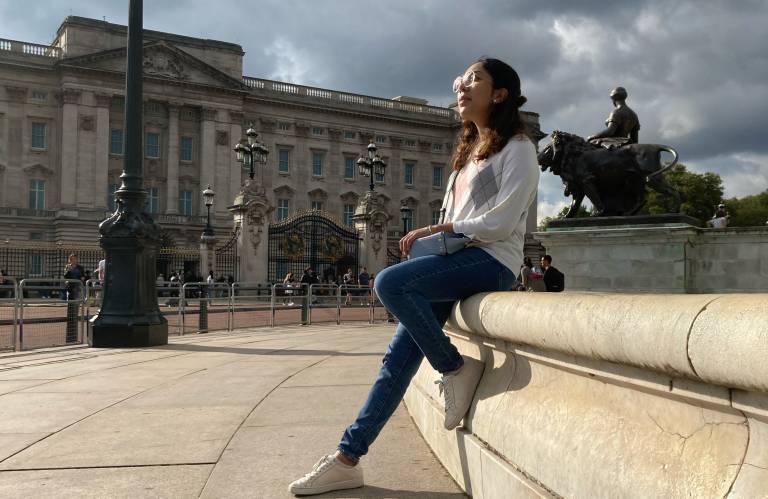Meet Citlalli - she's from Mexico. After completing the UPC for Humanities in 2021, Citlalli progressed to History of Art, Materials and Technology BA at UCL. Read more about her experience below.

What's your background?
I come from Mexico, where I finished high school at one of the top universities in Latin America. During high school, I had the opportunity to participate in an exchange programme in Italy, where I studied art history and some of the challenges related to the art world.
Why did you choose to study at UCL?
I chose to study at UCL due to its academic excellence and high teaching standards. I wanted to be part of a high-quality course that would challenge me to develop my academic skills in preparation for my university studies.
I knew that studying at UCL would give me the necessary tools to progress to a top university in the UK.
What course do you study now, why did you choose the subject and what is it like?
I am currently studying a degree in Art History, Materials and Technology BA at UCL. I chose to study this degree as I’m interested in pursuing a career in art conservation.
The course is very interesting as it encourages students to question the art world and to challenge traditional notions that have ruled it for many years.
In addition, the course allows me to interact with the materials used for different art media and understand their composition, deterioration and development through time.
How has the UPC helped you in your undergraduate degree?
The skills I acquired in the Academic Research and Academic English modules have given me a great advantage when writing research and high-quality essays.
Researching, organising and writing cohesive and coherent texts are a few of the many skills that I learned. These are fundamental for any type of academic writing.
Modern European Culture and Classical Civilisation constantly challenged me to think critically about the content and readings of each module. A skill which is essential for any degree, as it allows you to develop original ideas and question pre-existing notions through your research and knowledge.
What was the biggest challenge you faced during your time on the UPC?
As our year had to be moved online due to the pandemic, online learning was one of the main challenges I faced during the UPC. Time differences between the students of the UPCH, meant that some of my modules were scheduled between 3 – 5 am. At times, I had concentration issues or felt too tired during my seminars.
However, both my module and personal tutors were very understanding of my situation and would often make some time to answer any questions I had.
Additionally, my modules were very interesting. The tutors were great at engaging with the content and the students, encouraging further discussion and analysis of the topics reviewed.
What advice would you give to a prospective UPC student?
Remember that while your studies are very important and you should make sure to focus on them, you also need to rest. Time management will be the key to finding balance between coursework and leisure.
Find something you like, perhaps you can join a student society, and spare some time during your week to do it. Not only will this help you hone your time management skills, but also to feel less stressed and make friends in the UCL community.
What is the most interesting thing you’ve done, seen or got involved with while at UCL?
As part of the Art Business Society, I participated in an online talk on forgeries, authenticity and authorship in business transactions. I was able to learn and ask questions about the scientific techniques and material analysis used in art business.
I have also joined the Dance Society and the KPOP Society which teach different dance classes and organise showcases, as well as many social events.
How is the UK education system different to your home country?
The education system in the UK encourages students to interact more with the content of the course. Seminars allow students to discuss the topics reviewed and bring their own ideas and questions up for debate. In Mexico, learning is more passive and students are not expected to constantly contribute to the class.
 Close
Close

